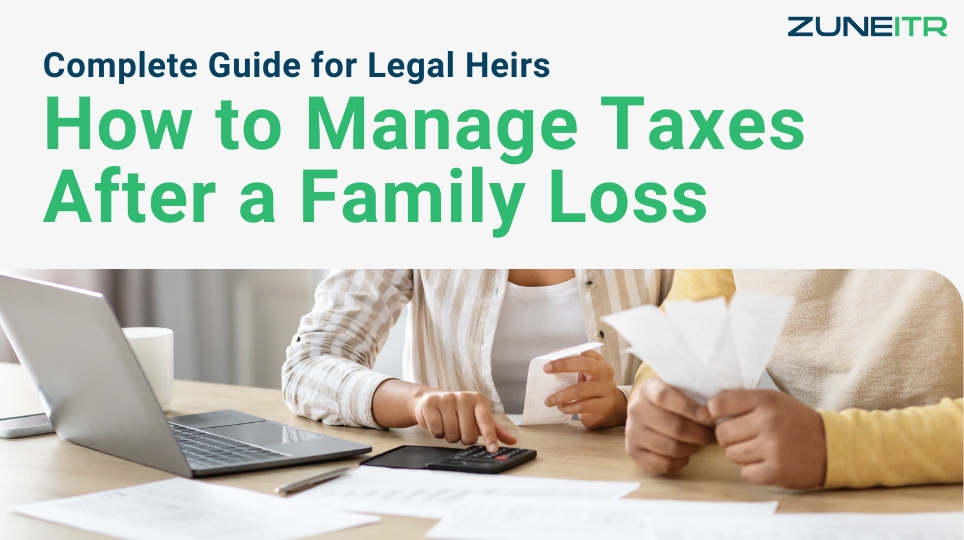Navigating Tax Compliances After a Loved One’s Passing: A Guide for Legal Heirs
As a legal heir, it is crucial to understand that you’re not just responsible for the assets but also for managing any outstanding debts or taxes. The first step is to notify the Income Tax Department about the taxpayer’s death and your role as the legal representative.
- Access the Portal: Log in using your PAN details at the e-Filing portal of the Income Tax Department.
- Navigate to the Right Section: Select ‘My Account’, and then choose ‘Add/Register as Representative’.
- Provide Necessary Detail: Choose ‘Deceased (Legal heir)’ under the category options, then fill in the deceased’s PAN and the date of death.
- Attach Required Documents: You will need to attach a copy of the death certificate, a legal heir certificate, or a surviving family member certificate along with your PAN card.
- Submit the Form: After checking that all details are correct, submit the form. You will receive an acknowledgment upon successful submission.
Income earned by the deceased from the start of the fiscal year until the date of death should be reported in the ITR. Here’s how to approach it:
- Collect all Income Details: Gather all necessary documents such as bank statements, salary slips, and reports of any other income.
- Calculate the Tax: Determine the tax liability based on the income until the date of death.
- File the Return: Using the credentials as a Representative Assessee, file the ITR under the deceased’s PAN for the income earned up to the date of their death.
Any income generated from the deceased’s estate after their death is taxed in the hands of the legal heir. This income should be included in your own tax returns under your PAN.
Mrs. Sharma handled her father’s estate after his unexpected demise. Initially overwhelmed, she managed to file the necessary returns by registering as a Representative Assessee. She used her father’s investment returns and rental incomes, meticulously documenting everything to ensure compliance. Her proactive approach helped her avoid penalties.
Case Study 2: Mr. Rajan from Chennai
Mr. Rajan took over his uncle’s tax matters after his passing. By consulting with a tax professional, he understood his responsibilities to manage both the taxes due before and after his uncle’s death. With proper guidance, he ensured all compliances were met, including the transition of estate income to his tax filings.

